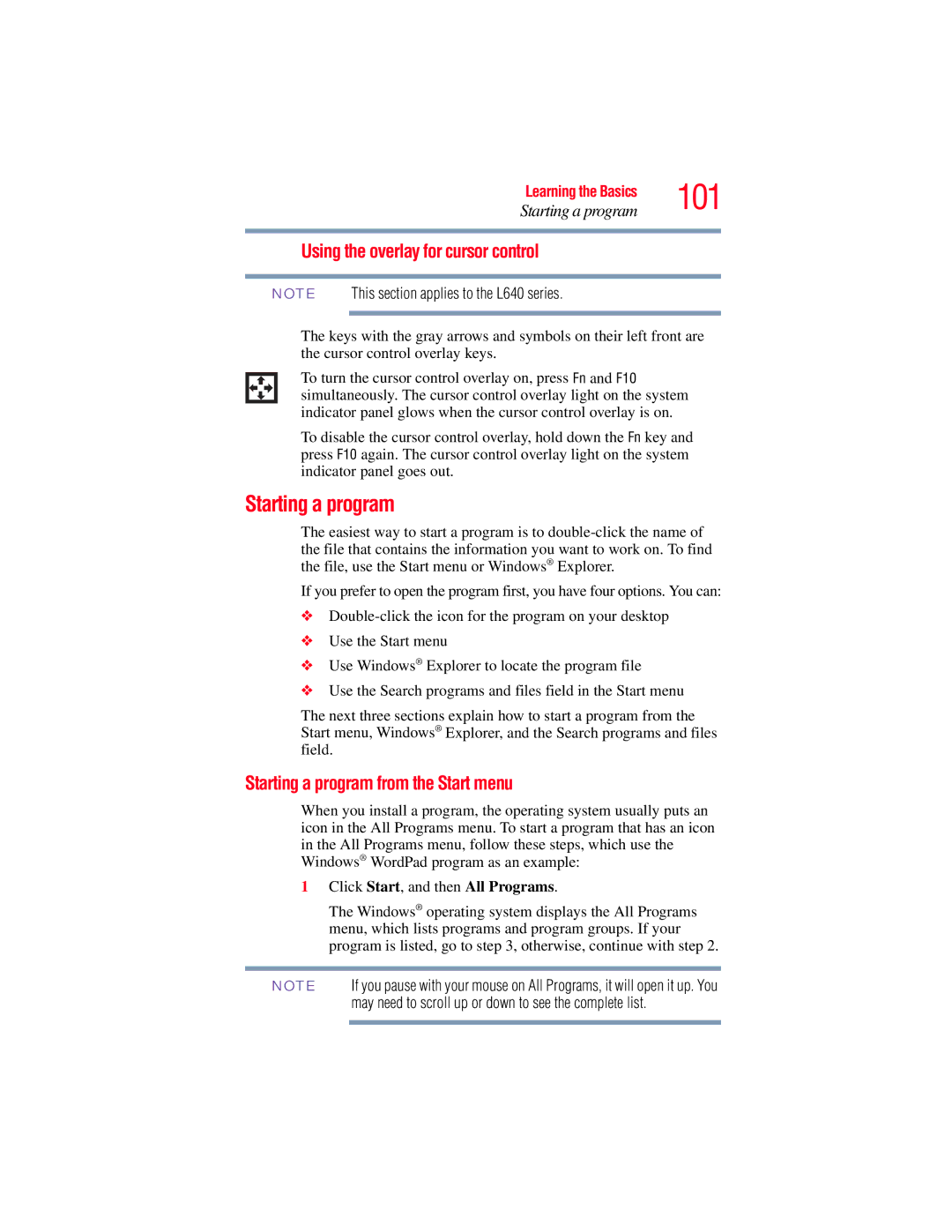
Learning the Basics | 101 |
Starting a program |
Using the overlay for cursor control
NOTE This section applies to the L640 series.
The keys with the gray arrows and symbols on their left front are the cursor control overlay keys.
To turn the cursor control overlay on, press Fn and F10 simultaneously. The cursor control overlay light on the system indicator panel glows when the cursor control overlay is on.
To disable the cursor control overlay, hold down the Fn key and press F10 again. The cursor control overlay light on the system indicator panel goes out.
Starting a program
The easiest way to start a program is to
If you prefer to open the program first, you have four options. You can:
❖
❖Use the Start menu
❖Use Windows® Explorer to locate the program file
❖Use the Search programs and files field in the Start menu
The next three sections explain how to start a program from the Start menu, Windows® Explorer, and the Search programs and files field.
Starting a program from the Start menu
When you install a program, the operating system usually puts an icon in the All Programs menu. To start a program that has an icon in the All Programs menu, follow these steps, which use the Windows® WordPad program as an example:
1Click Start, and then All Programs.
The Windows® operating system displays the All Programs menu, which lists programs and program groups. If your program is listed, go to step 3, otherwise, continue with step 2.
NOTE If you pause with your mouse on All Programs, it will open it up. You may need to scroll up or down to see the complete list.
